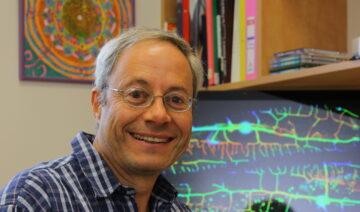
Environmental Biology is the scientific study of the interactions between the ecosystem and the plants, microorganisms, and animals within it, as well as of species diversity and the effect of humans on ecosystems. The overall goals of Environmental Sciences include learning more about how natural environments work, understanding the human influence on inter-system balance, and finding new and sustainable solutions to environmental threats.
The Faculty of Biology at the Technion focuses on how various species adapt to changing environmental conditions. For example, research is being conducted in:
Metagenomics/Ecogenomics – a field that enables us to explore parts of the environment that were, until recently, hidden from us. Present estimates suggest that >99% of the microorganisms in most environments are not amenable to growth in pure culture.
Understanding host-virus interactions and how they impact population dynamics, diversity, and genome evolution of host cells and the viruses that infect them, pioneered the atomic-level analysis of bacterial amyloids and eukaryotic functional fibrils involved in cytotoxicity, biofilm structuring, and antibacterial activity.












